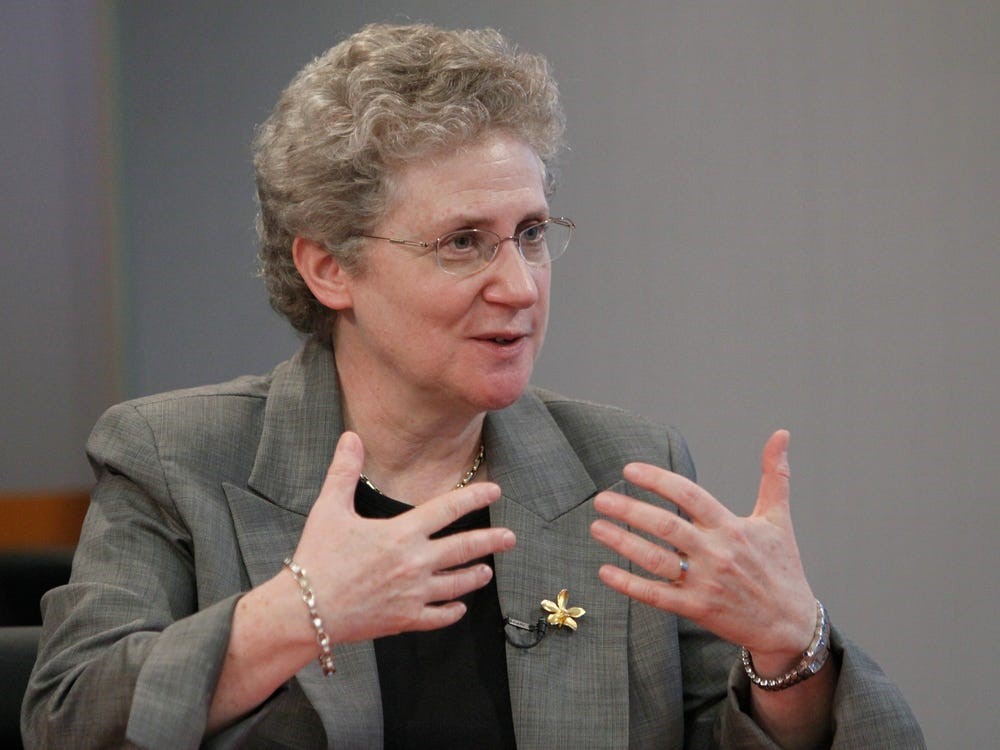
Throughout her career, financial analyst Abby Joseph Cohen has been a leading voice in the investment banking and finance industry. Not only is she famous for her work on global economies and consequences for government policy and financial markets in and outside the United States, but she is also a pioneer in setting up new norms for work-life balance in the finance industry.
Born in 1952 in Queens, New York, Cohen showed a particular talent for mathematics and science at a young age, her first loves being physics and chemistry. She graduated from Cornell University with a double major in economics and computer science in 1973 and earned an MS degree in economics from George Washington University in 1976.
She began her career in 1973 as an economist with the Federal Reserve Board of Governors and three years later joined investment management firm T. Rowe Price Associates, where she spent a few years working as an economist and quantitative research director.
After stints at Drexel Burnham Lambert and Barclays de Zoete Wedd, Cohen eventually joined Goldman Sachs in 1990. She was named managing director in 1996 and partner two years later.
That same decade, she earned Institutional Investor’s top strategic ranking and became Wall Street's best-known market guru with her prediction of a bull market for the mid-1990s.
Although she retired from her position in 2018, she still works as an advisory director at Goldman Sachs.
Not only is her illustrious career the subject of a Harvard Business School case study, but she has also become a role model for balancing work, marriage, and children in a demanding industry. Cohen once explained, “My family is my most important client, I always made a point to be at school plays or visiting days at camp. Those things go on my business calendar.”
Being one of only a few professional women in the male-dominated financial sector, she has faced many challenges. For instance, at T. Rowe Price, she was denied health insurance for her family—only men, primary wage earners, were entitled to it.
While she may not have had a role model such as herself to lean on in her early days, her diverse experiences and remarkable career path have rendered her a guiding light for future generations of professional women.
